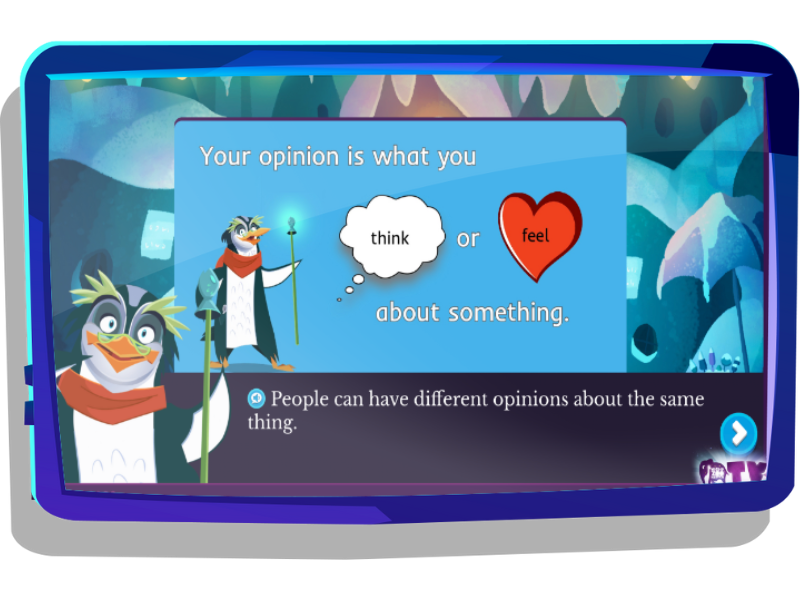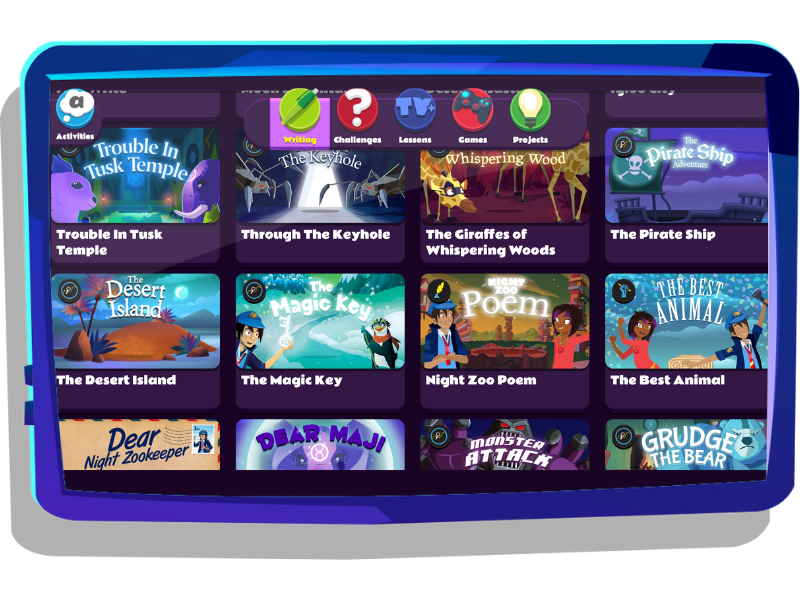Year 2 Writing
Discover Year 2 writing standards

Home > English > Writing > Year 2
Year 2 students need lots of time and opportunity to practice their writing skills. They’re required to use the English language skills they learnt in Year 1 to advance their basic primary writing principles at this level. Before your young writer puts pen to paper, or their fingers on the keyboard, they’ll need to have a broad vocabulary, skills in spelling, grammar and punctuation, and feel confidence in handwriting and/or typing.
As expectations step up, many young writers start to find the writing process difficult. To help your child, you can provide them with a range of different writing activities to support their development. This guide will provide you with explanations, practice tips, and fun writing resources to help you support your child in the best way possible!
There are three main writing styles learners will come across in Year 2. These are:
They should familiarise themselves with the features of these writing styles and understand their different purposes.
Opinion Writing
When children are composing opinion writing pieces, there are four key elements that they must include:
- Introduction: Write a clear introduction about the topic or subject they are writing about.
- Reasoning: Give a reason to support each of their opinions.
- Conjunctions: Use conjunctions or linking words (e.g. but, and, if) to connect opinions and reasons.
- Conclusion: Children must sum up their argument and bring to the reader's attention the most important points they have raised.
If your child can master these steps, then they’ll be in an excellent position to succeed when writing opinion articles in Year 2.
Practice Tip
Your child can work through the opinion writing lesson series on Night Zookeeper to help practice the basics of writing in this genre.

Explanation/Informative Writing
Informative writing is a more complex writing style, as it requires young writers to gather knowledge on a specific topic before the writing process can begin. Informative writing is sometimes referred to as explanation writing.
Year 2 students will need to use the writing skills they built in Year 1 to support the development of new ones. These include research skills, note-taking, the ability to recognise and understand the meaning of new words, and reading comprehension skills.
Practice Tip
Challenge your child to pick out an informative text at home and write down three key facts they have learnt on each page.
---
Once they have acquired the knowledge to write their article, they can begin their first draft. Your child should aim to include all of these key features:
- Main title
- Introduction
- Subheadings
- Bullet points
- Informative Paragraphs
- Pictures/diagrams with captions
It’s a great idea to ask your child to label each section of their work to ensure they have included all the necessary features. You can also help your young learner by providing feedback on their composition, whilst also checking whether they have included the most important facts they collected during the note-taking phase.
Narrative Writing
In Year 2, children are expected to write stories that include a short sequence of events. They’ll be encouraged to put their existing creative writing skills to good use, as learners will be required to add more detail about actions, thoughts, and feelings to their stories. Time connectives and openers should be used to show the sequence of events and the story should have a clear ending.
They can take inspiration from stories they’ve read. Often, retelling one of their favorite stories is a perfect place to start their learning journey in this particular genre.
Year 2 Story Checklist
These are the key features your child must include in their writing at Year 2 level:
- Character descriptions
- Character dialogue
- Setting descriptions
- A problem characters face
- A solution to the problem
- An ending or resolution
Practice Tip
Challenge your child to write a story on Night Zookeeper using the creative writing prompts and helpful story openings. This activity will provide your child with the inspiration to get their story started, whilst also the guidance to structure their opening paragraphs in an interesting and varied style.

Five ways your child can boost their Year 2 writing skills!
- Read lots of books! Avid readers have the opportunity to take writing advice from their favorite authors as they grow their vocabulary, expanding their knowledge of different parts of speech, such as new nouns, adverbs, verbs, and more, which they can then use in their own creative writing. This is also a great way to improve reading comprehension.
- Read and celebrate their writing. Read as much of your child’s writing as possible and place value in every piece of writing your child shows you. Praise them for new words they’ve used and for spelling and grammar skills they’ve displayed. This positive reinforcement will encourage your child to practice more in the future.
- Give them a fun writing prompt. Starting a story can be tricky, and sometimes it’s great to encourage your child to write by giving them a clear starting point/prompt. Night Zookeeper offers thousands of writing resources, including writing prompts on all styles of writing, to ensure that your child is always inspired!
- Enable spelling and grammar tools sometimes. Think of this as learning to ride a bicycle with training wheels to help! In Year 2, children are still learning how to apply correct spelling and grammar rules (such as how to use prefixes and suffixes in sentences). Using tools, such as word processors with spelling error correction, to aid the writing process can relieve stress and make your child’s writing journey a lot more enjoyable.
- Set up a writing station at home. By creating a permanent space where your child can sit and write will encourage them to pick up a pen or pencil more often. This increased time spent writing will have a huge impact on their writing skills and it’ll also help them to think about writing more as a hobby rather than a chore. This station could include fun writing prompts, workbooks and other writing resources, illustrations to use as inspiration, some of their favorite books, and plenty of lined paper for whenever they feel inspired. You can also create flashcards with vocabulary words that are new to your child, with definitions and how each new word can be used in a sentence.
How Night Zookeeper can help

Our writing program for kids is the best place for your child to put into practice the many writing skills they’ve learned in Key Stage 1! There are thousands of writing activities to help your child consolidate their learning, including games on how to use adverbs, homophones, and nouns, lesson series on all styles of writing, challenges, and creative writing prompts!
All our writing resources are arranged by year group, to ensure that your child has access to everything they need to become a budding young writer.
Sign up today to get a FREE 7-day trial and kickstart your child’s English language journey!
Related articles


Make Reading & Writing Fantastically Fun!
- Award-winning reading & writing program for kids
- Improves spelling, grammar, punctuation & vocabulary
- Over 1,000 different learning games and activities



